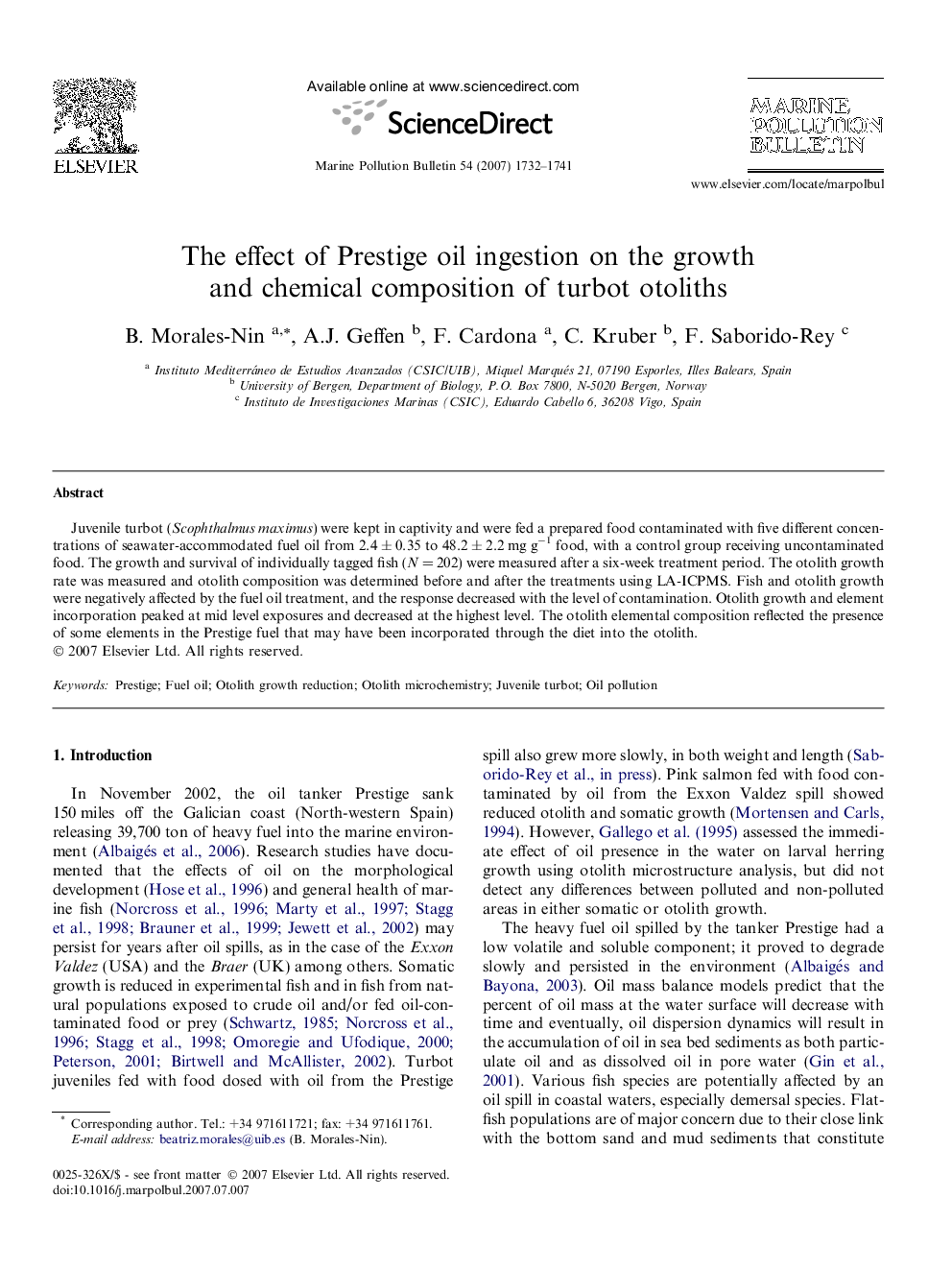| Article ID | Journal | Published Year | Pages | File Type |
|---|---|---|---|---|
| 4477813 | Marine Pollution Bulletin | 2007 | 10 Pages |
Juvenile turbot (Scophthalmus maximus) were kept in captivity and were fed a prepared food contaminated with five different concentrations of seawater-accommodated fuel oil from 2.4 ± 0.35 to 48.2 ± 2.2 mg g−1 food, with a control group receiving uncontaminated food. The growth and survival of individually tagged fish (N = 202) were measured after a six-week treatment period. The otolith growth rate was measured and otolith composition was determined before and after the treatments using LA-ICPMS. Fish and otolith growth were negatively affected by the fuel oil treatment, and the response decreased with the level of contamination. Otolith growth and element incorporation peaked at mid level exposures and decreased at the highest level. The otolith elemental composition reflected the presence of some elements in the Prestige fuel that may have been incorporated through the diet into the otolith.
